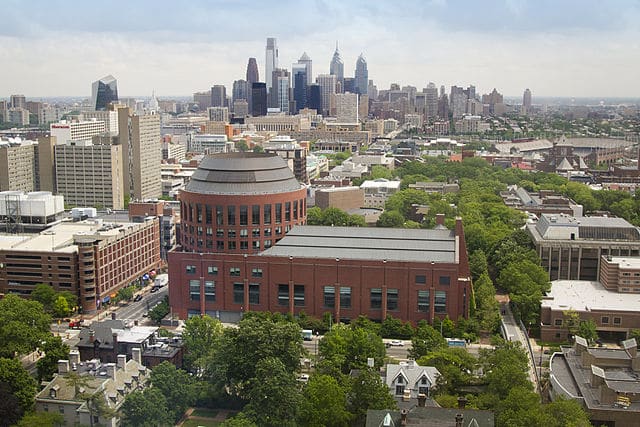Robotics engineering is a quickly expanding field, as more and more students are interested in creating automated technology that makes life easier.
This field of engineering is responsible for building autonomous machines that are used throughout industry, including aerospace, automotives, manufacturing, medicine, mining, service, and transportation.
These robots are programmed to complete repetitive or dangerous jobs so people don’t have to.
In their day to day, robotics engineers design prototypes, build machines, and create software to control the actions of robots. They perform research to ensure their designs are as safe and cost-effective as possible. Using their background knowledge of engineering and technology, they are able to design effective processes.
This multidisciplinary field brings together knowledge from a variety of engineering fields, including mechanical, electronic, computer, and systems engineering. Professionals need to be able to handle a wide range of tasks from designing to programming automation systems. Many entry-level robotic engineering positions require a bachelor’s degree in mechanical, electrical, or software engineering for the foundational knowledge.
However, higher level positions require a specialized, graduate-level education. While there are a handful of undergraduate programs in robotics engineering, students will be able to show their breadth of knowledge with an MS degree. A specialized robotics engineering curriculum is the best way to study many engineering fields and gain valuable hands-on experience.
While at robotics engineering school, students gain exposure to industry-standard equipment and innovative research projects. They study a curriculum that spans the core disciplines. These experiences help students graduate with the skills and knowledge required in their future careers.
There are approximately 130,000 robotics engineers in the United States today, earning an average annual salary of $85,000. In order to remain competitive, robotics engineers need to attend a well-known school with a strong robotics program.
Here are ten of the best robotics engineering schools in the nation.
Northeastern University (Boston, MA)

Using a combination of comprehensive curriculum, hands-on research, and co-op positions, robotics students at Northeastern will be able to make an impact on society. Students will take classes across the engineering field, from control systems engineering to robotics navigation. In addition, there are three engineering concentrations for further specialization – mechanical, electrical, and computer.
In order to apply classroom knowledge, students can participate in a wide variety of research through the Institute for Experiential Robotics. Northeastern students work alongside university researchers to further the field in human-robot interactions, multi-robot coordination, robot manipulation, and reinforcement learning.
The hallmark of Northeastern is their world-renowned co-op program that allows students to develop their skills in industry. In Boston alone, there is a wide range of innovative robotics companies such as Amazon Robotics, Teradyne, and Bluefin Robotics. With over 100 years of industry partnerships, robotics students are sure to find a co-op placement that matches their interests.
University of Pennsylvania (Philadelphia, PA)

UPenn is committed to providing the in-depth curriculum and professional connections to jumpstart each student’s career. In the robotics program, graduate students study ten courses in artificial intelligence, robot design, controls, and perception. To finish their program, they have their choice of advanced electives and a thesis project.
Robotics students are centered in the General Robotics, Automation, Sensing and Perception (GRASP) Laboratory.
Founded in the late 1900’s, this incubator fosters collaboration between students and world-renowned robotics faculty. The laboratory also houses state-of-the-art equipment for a wide range of research projects.
Throughout their time at UPenn, robotics students have many opportunities for networking across industry and academia. This is accomplished in weekly seminars, lunches, and other events. A solid professional network prepares robotics students for further education or a job in the industry.
Georgia Institute of Technology (Atlanta, GA)

At Georgia Tech, the robotics program is the result of a collaboration between six engineering disciplines – aerospace, biomedical, electrical and computer, interactive computing, mechanical, and physics. Georgia Tech also offers the first PhD program in robotics.
No matter which program, robotics students have access to the school’s wide range of industry partners. Many well-known companies partner with Georgia Tech for their diverse range of resources. In addition, the school hosts hiring events and mixers to facilitate connections between companies and Georgia Tech robotics students.
Georgia Tech students find many different ways to reach out to their community through robotics. RoboGrads, a student group on campus, hosts events to raise awareness of the importance of robotics. The department is actively involved in community outreach to stimulate interest in STEM for the K-12 community.
Northwestern University (Evanston, IL)

While at Northwestern University, robotics students advance through their curriculum with a small cohort of 15 – 20 students. This small class size allows faculty members to individually work with each student and focus on their technical and professional abilities. In addition, robotics students work alongside like-minded peers and develop strong social and professional networks.
Throughout the curriculum, robotics students work on innovative research projects on aerial robotics, haptic interfacing, bio-inspired sensing, prosthetics engineering, and more. They will graduate with a portfolio of impressive projects that illustrate their abilities to future employers.
Northwestern robotics students go on to pursue PhDs at top robotics schools, create their own startups, or join prestigious companies.
Alumni of the program have been hired at companies like Disney, Fetch Robotics, Auris Surgical Robotics, and BMW. In addition to internship opportunities, students have access to strong career services from the Engineering Career Development office.
Stevens Institute of Technology (Hoboken, NJ)

Robotics students at Stevens Institute of Technology have access to a highly customizable curriculum with a variety of interdisciplinary courses. They can decide what aspect of the program they want to emphasize, whether it is research or a thesis project. In addition, there are evening, online, and accelerated courses available to meet each student’s needs.
Located just outside New York City, students have access to a wide range of robotics engineering companies. General Dynamics, Johnson & Johnson, Lockheed Martin, and Stryker are some of the top hiring organizations for Stevens robotics students.
As a result of the interdisciplinary education, students graduate as highly sought-after robotics engineering professionals. 95% of robotics students are employed within three months of graduation, earning an average salary of $95,000.
University of Washington (Seattle, WA)

While at the University of Washington, mechanical engineering graduate students can specialize in controls, mechatronics, and robotics. In this concentration, they take a variety of courses, including biology-inspired robot control, dynamic systems, and instrumentation.
Robotics students are able to participate in many innovative projects alongside faculty members. The university is at the forefront of research in robotics and human interaction, manufacturing, controls, sensors, augmented reality, and autonomous systems.
The Boeing Advanced Research Center partners industry engineers with students and faculty to develop automation and robotic solutions for Boeing products.
Students can also use their robotics expertise in a variety of student competition teams. Husky Robotics designs Mars Rovers to accomplish specific missions, allowing students to develop expertise in machining, circuit design, collaborative project management, and coding. In their most recent competition, Husky Robotics placed 2nd in the world in the International Rover Challenge Series.
New York University (New York, NY)

NYU recognizes the need to provide a highly interdisciplinary and comprehensive robotics education. The university works to engage students through hands-on engineering education, research, and entrepreneurial opportunities. Graduate students are able to further specialize in assistive mechatronic and robotic technologies, mobile robotics, or micro-robotics.
Undergraduate students can begin their robotics education through a minor or Vertically Integrated Project (VIP) related to robotics. These long-term, large-scale projects allow students to develop necessary skills and work collaboratively to solve problems with robotics. Some of the most popular robotics VIPs are NYU Self-Drive, Smart Internet of Controlled Things, and the NYU Robotic Design Team.
There are also many research labs and groups available for students to participate in. Research areas at NYU vary widely from learning-based control to medical robotics. The Agile Robotics and Perception Lab focuses on developing autonomous drones that navigate with sensors instead of maps, GPS, or motion capture.
Worcester Polytechnic Institute (Worcester, MA)

Thanks to signature project-based learning, WPI is at the forefront of robotics engineering education and applied research. It is the first university in the nation to offer BS, MS, and PhD degrees in robotics. These degrees prepare robotic engineers to significantly contribute in a number of disciplines including healthcare, manufacturing, transportation, and many more.
As a result of its innovative programs, the WPI robotics engineering department was recognized with the 2016 ABET Innovation Award. This recognition is the result of dedicated faculty members that bring a new dimension to robotics engineering.
In addition, the school’s holistic approach to the curriculum brings together computer science, electrical engineering, mechanical engineering, and systems.
One of WPI’s goals is to generate interest in robotics from a young age. The department participates in a variety of K-12 community outreach activities, including robotics demonstrations, presentations, and summer programs.
Johns Hopkins University (Baltimore, MD)

In order to graduate robotics engineers that function effectively in industry, Johns Hopkins is committed to broad interdisciplinary robotics education. The curriculum also helps develop necessary skills, including leadership, collaboration, curiosity, and critical thinking.
For students interested in deepening their training, Johns Hopkins offers a combined program that allows them to earn a BS and MSE in just five years. This advanced degree in robotics shows future employers the depth of education and typically results in higher salaries.
The Laboratory for Computational Sensing and Robotics is recognized as one of the top robotics research centers globally. It is at the forefront of medical robotics, autonomous systems, and bio-inspiration. To foster innovation, the center brings together students and faculty from medicine, public health, science, and engineering.
Carnegie-Mellon University (Pittsburgh, PA)

The Robotics Institute at Carnegie Mellon has been a leader in robotics education since its foundation in 1979. The school’s mission is to use applied research to leverage robots in industrial and societal activities. Faculty and students alike come from a diverse array of backgrounds, with unique expertise in many areas.
Carnegie Mellon is a well-respected research university, with over 180,000 square feet of facilities for robotics research. Sponsors of university research include DOD, DARPA, NASA, NIH, and NSF. The Robotics Institute is the largest university-affiliated robotics engineering research center in the world.
Students can also apply their knowledge through the National Robotics Engineering Center (NREC), a technology transfer organization. The center focuses on the development of robotic systems for industry and government partners. To accomplish these projects, the NREC is an expert in the rapid integration and field testing of automated systems.














